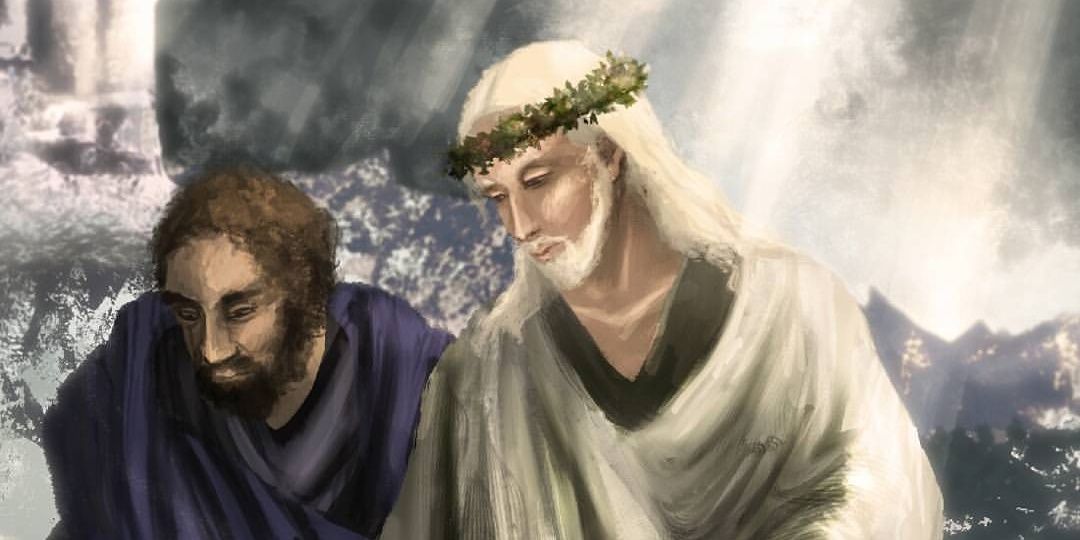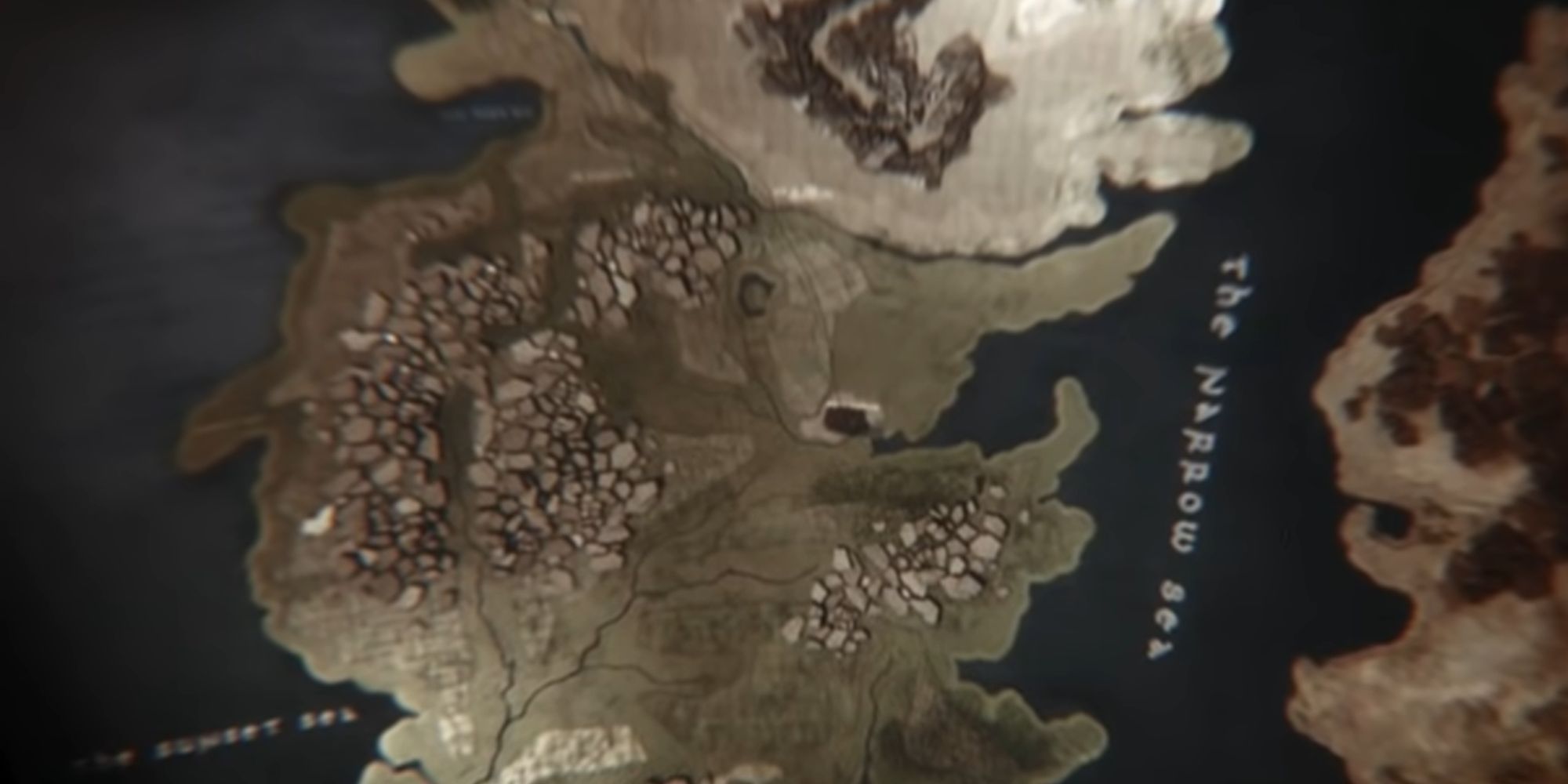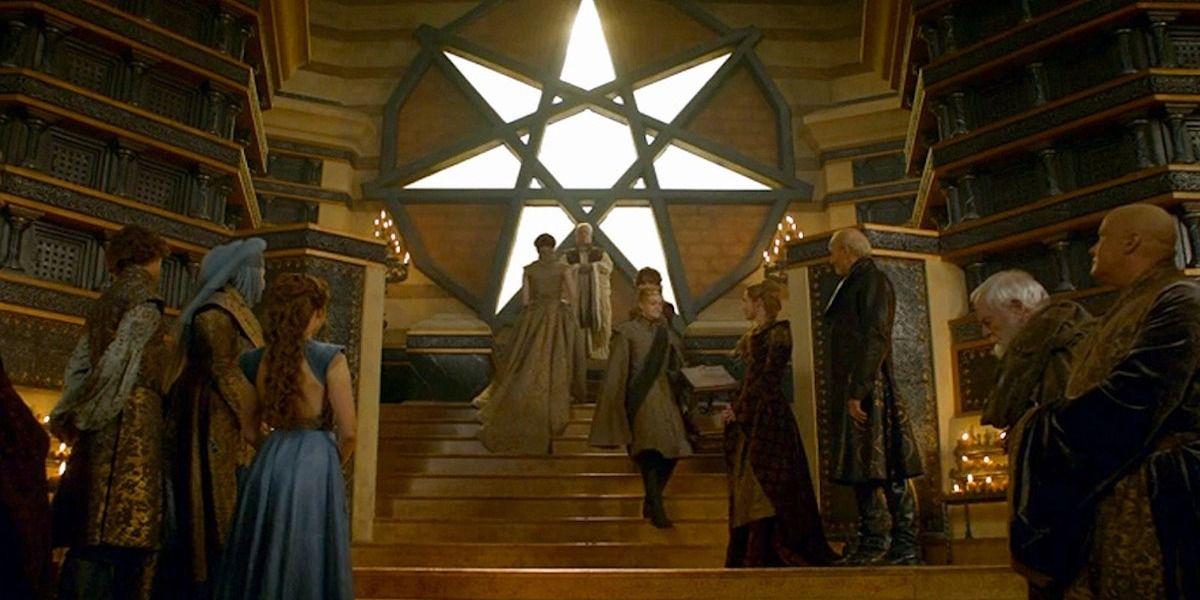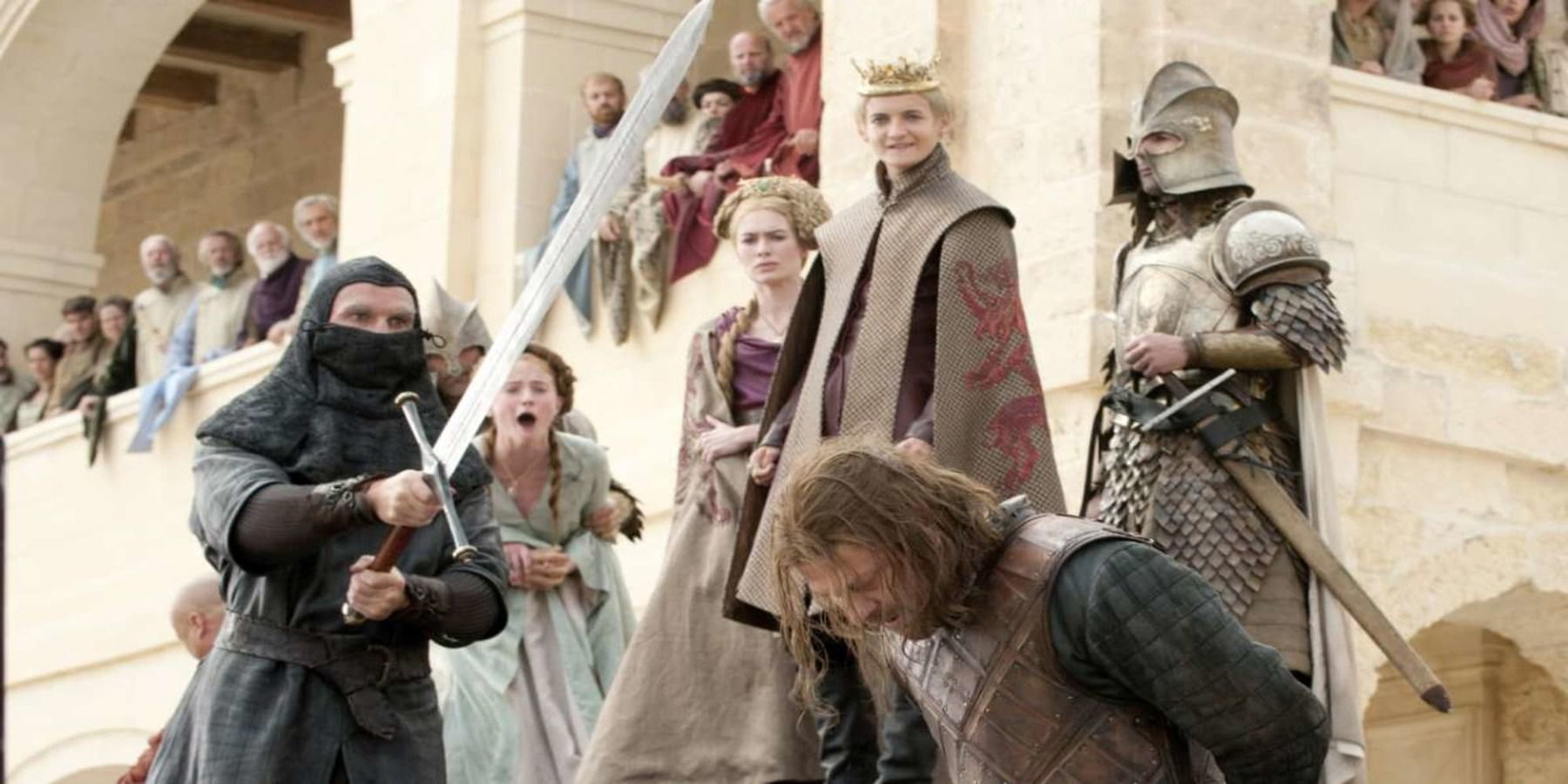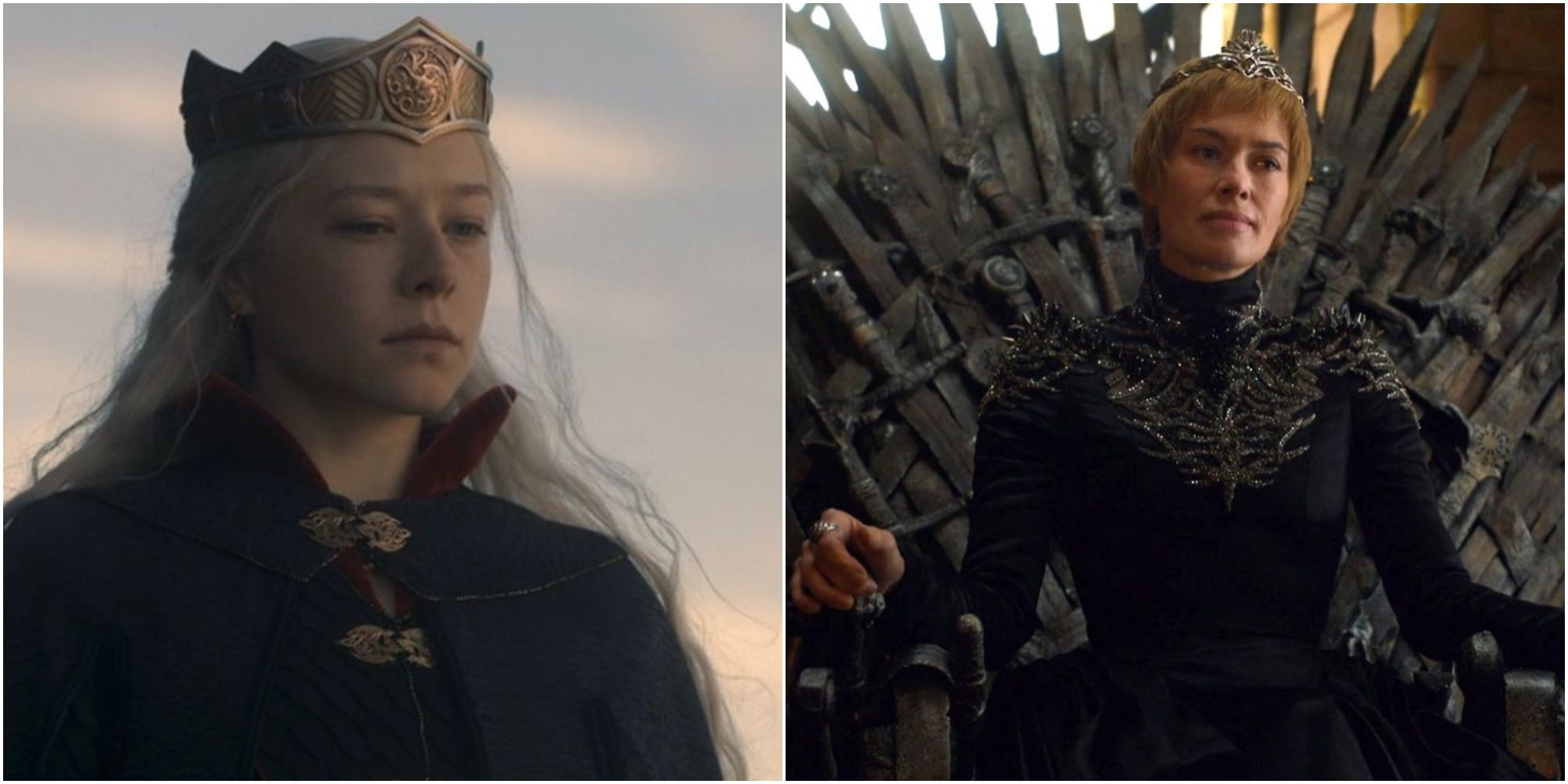
The Mysterious Identity of Baelor in Game of Thrones Unveiled

Unravel the mystery surrounding the enigmatic Game of Thrones character, Baelor the Blessed, and explore his fate, along with the significance of Ned Stark's final words before his execution Dive into the intriguing world of Westeros and discover the secrets behind Baelor's identity
The history of Westeros is rich with countless notable figures, both revered and feared. In George R.R. Martin's Game of Thrones, the actions of both rulers and ordinary individuals possess the power to shape the course of history, leaving a lasting impact. Among these historical accounts lies a significant focus on the Targaryens, the original royal family of the Seven Kingdoms.
While some members of this notorious family cemented their place in history through their ruthless tendencies, embracing the motto of House Targaryen - "Fire and Blood" - others opted for a different approach. Among the most renowned Targaryens, whose influence continues to resonate even centuries later in the main series, is Baelor. The reasons behind Baelor's fame and the role he played in the intricate web of Martin's expansive world are both intriguing and influential.
Who was Baelor in Game of Thrones?
Baelor I Targaryen, later known as Baelor the Blessed, became the ninth Targaryen ruler on the Iron Throne and also served as a septon in the Faith of the Seven. At the age of seventeen, in the year 161 AC, Baelor ascended to the throne, succeeding his brother King Daeron I Targaryen. Daeron had tragically lost his life during a surprise attack led by rebellious forces from Dorne, shortly after conquering the region. Despite the devastating loss, Baelor chose to forgive the Dornish rebels responsible for the murder of his brother. As his first act as king, Baelor pardoned the fourteen Dornish hostages who had been threatened with execution by the Hand of the King. While this decision angered the lords of Westeros and the members of the small council, it set the tone for Baelor's reign and solidified his reputation as a deeply religious and generous ruler.
To further foster peace between the Iron Throne and Dorne, Baelor carried out a remarkable gesture by personally escorting the pardoned hostages back to their homeland. In an act of extraordinary humility, the king embarked on the journey to Dorne without any footwear, dressed in simple attire, while allowing the hostages to ride on horseback. This challenging expedition came to be known as Baelor's first "miracle." Shortly thereafter, Baelor achieved another miracle by successfully negotiating a peace agreement with the Prince of Dorne.
On Baelor's return from Dorne, he endeavored to liberate Prince Aemon Targaryen of the Kingsguard from his captivity imposed by the Dornish Lord Wyl. Aemon, who had faithfully accompanied King Daeron in the face of treachery by the Dornishmen, was spared from death alongside his sovereign and kinsman. Instead, Lord Wyl opted to seize him as a hostage and subject him to torment as retribution for the Invasion of Dorne.
Baelor had asked the Prince of Dorne to order Lord Wyl to release Aemon as part of the peace agreement between the Iron Throne and Dorne. Despite the Prince of Dorne's reassurances, when Baelor arrived at Aemon's prison, he found the knight hanging in a cage above a pit of vipers. Lord Wyl, hoping that both Baelor and Aemon would die in the rescue attempt, freely gave the king the key to the cage and instructed his man not to intervene. Though Aemon pleaded with the king to leave him, Baelor refused and entered the pit, trusting in the protection of the gods.
While some claim that the snakes did not harm him due to his divinity, other sources state that he was bitten multiple times but survived. Regardless of the truth, Baelor successfully freed his cousin Aemon and returned to King's Landing, adding another miraculous feat to his reputation. From that point on, his legend only continued to grow.
Upon returning to King's Landing, Baelor annulled his unconsummated marriage with his sister, Daena. In a display of misogyny and possessiveness, he then imprisoned Daena and his other two sisters in a structure known as the "Maidenvault." He claimed that his intention was to protect their innocence and prevent them from tempting the men at court. However, there are suggestions that these actions were driven by his personal benefit. Baelor was not only deeply devoted to piety but also to maintaining an image of purity. He strived to distance himself from anything that was deemed impure or unchaste.
During his reign, Baelor took further measures such as banning all forms of sex work, including the notorious brothels of King's Landing. He performed numerous "miracles" and dedicated the latter part of his rule to the construction of the grand sept. Completed long after Baelor's death, the Great Sept of Baelor became a prominent landmark in King's Landing and a central place of worship for followers of the Faith of the Seven in Westeros. Baelor gained fame for offering tax exemptions to lords who enforced the use of chastity belts on their daughters and for his attempts to hatch new Targaryen dragons through fervent prayer. His extreme religious practices, including book burning, often clashed with the noble families and scholars of Westeros. However, the common people, who somewhat shared his simplistic view of piety, admired him for his frequent acts of generosity, such as providing food and financial aid.
What Happened to Baelor?
As a devout act, Baelor would often engage in fasting. He adopted this practice later in his reign as a voluntary means to restrain his desires and other human impulses that caused him shame, while demonstrating his devotion to the gods. Following the tragic loss of his cousin Princess Naerys' newborn twins, Baelor embarked on a month-long fast. When his sister and former wife, Daena, gave birth to an illegitimate child, he undertook an additional forty-day fast, surviving solely on water and bread. Unfortunately, on the forty-first day, he succumbed and passed away.
The prevailing viewpoint associates Baelor's demise with self-inflicted starvation, a consequence of his devoutness. However, there are some who speculate that Baelor may have been poisoned by his uncle Viserys, the Hand of the King, possibly as a measure to spare the kingdom from Baelor's extreme religious fervor.
Why did Ned Stark Say "Baelor" before being executed?
After discovering that none of King Robert's children were his own, but were instead fathered by Queen Cersei's brother Jaime, Ned Stark decides to claim the throne until a legitimate heir emerges. However, his honorable nature works against him as he is outmaneuvered, betrayed, and accused of treason. Despite being offered a deal to confess his crimes and serve a lifetime on the Wall as a member of the Night's Watch, Ned is sentenced to death by the sociopathic boy king, Joffery.
The entire event takes place on the steps of Baelor's Great Sept, witnessed by a crowd of commonfolk who believe Lord Stark to be a true traitor. Prior to the execution, House Stark is forcibly removed from King's Landing by the Lannisters, with all Stark soldiers killed and any surviving noble family members held captive. Although Sansa, Ned's eldest daughter and former betrothed of King Joffery, is taken hostage, Arya Stark manages to evade capture.
During the execution, young Arya found herself in the midst of the crowd. In an attempt to improve her view of the proceedings, she cleverly positioned herself atop the statue of Baelor. To his surprise, Ned, as he was being escorted towards the steps, caught sight of Arya and quickly conveyed her whereabouts to Yoren, a familiar face from the Night's Watch. Amidst the chaos, Ned could only utter the word "Baelor!" Thankfully, Yoren comprehended his message and skillfully managed to rescue Arya, ensuring her safety.
